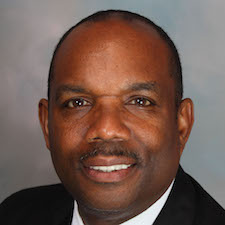
Darold Hamlin, John Rosenthall, and Byron Cherry offer the view that the nation’s historically Black colleges and universities must embrace the academic research and development culture in order to have the funding necessary for survival in the 21st century.
Historically Black colleges and universities (HBCUs) are a great resource to the African American community. But, many of these educational institutions are in danger of failing because they cannot financially sustain themselves. Moody’s Investors Service recently published a report that concluded that there are 650 colleges, including many HBCUs, that are in danger of closing, merging or restructuring because of declining enrollments. The question is: How can HBCUs be strengthened financially so that they can not only survive but thrive?
The U.S. Department of Education reports that the average public university receives 44 percent of its revenues from federal/state government contracts, grants or appropriations. The primary source of this revenue is federal research and development (R&D) funds. Since the passage of Bayh/Dole Act in 1980 – which permitted ownership of the results of scientific research – R&D revenues have grown from $75 billion to $145 billion this year. Those universities that have embraced R&D as the cornerstone of their strategic plan and growth are now taking in more money in R&D than tuition and fees. The top 10 universities in the country average over $1 billion a year in federal R&D receipts. Some run federal labs – including federally funded research and development centers – that enjoy 10-year or more research contracts.
How do HBCUs get involved in R&D? It starts with the federal budget. African American political leadership in Congress must recognize that R&D funding is directly tied to HBCU sustainability. They must ensure that all federal agencies include HBCUs and other minority-serving institutions in their R&D programs. Next, the HBCUs must structure themselves to receive the funds and comply with all federal requirements. The schools must learn to leverage their brand (the school name) and work with businesses to create academic/industrial partnerships so the schools can leverage their science, technology, engineering and math (STEM) talent to be a revenue generator.
The HBCUs must also work with industry to establish third-party entities (i.e. research foundations) that can use that school’s name to generate revenue for both the corporate partner and the university. Also, they must realize that research is a strategic multiplier for the school. The research that the school conducts not only diversifies the revenue for the school, but the multipliers results from the commercialization of the research. Finally, conducting important research will make HBCUs a valuable resource for the country in its particular area of specialization. This will attract the caliber of students the university desires. R&D also permits the university to offer more employment opportunities to faculty and staff.
HBCUs can survive and thrive in the 21st-century global economy by embracing technology and innovation. HBCUs must become the entry point for African Americans for ownership of next generation industries. This ownership of new economy companies will serve to close the persisting income and wealth inequality gaps in this country.
This transformation to a multifunctional organization cannot be accomplished by the educational institution alone. HBCUs must become matrix organizations where complementary skill sets are coordinated in a unified effort that results in multiple streams of revenue for the university and their business partners. If African Americans are going to be part of a technology-driven economy, then R&D investments and structure must be created to realize the potential of our universities for the Black community and for this country.
Darold Hamlin is founding partner of the Emerging Technology Consortium (ETC) which is a group of companies and individuals dedicated to ensuring the benefits of technology reach all communities. He has served as a professor of military science and departmental chair at Fordham University in New York City. John Rosenthall is president of the University Research and Development Foundation. Dr. Byron Cherry is president of Succeed to Lead.













I was compelled to respond to the author of the above article. It’s within our mind set to believe there is what they call black colleges however we must understand the danger of saying so… Yes the so called colonists made certain things to suit their interest even though most of them are so vague. It’s therefore necessary for the world to understand that they is nothing like black or white it’s either two funny skins one being black with great out look while the other being smelly brown . But above all we are all created in the image of God so we must emphasis on degrading our selves but focus on steering our selves higher so that we can avoid UN necessary challenges by this so called colonist…we are great , the challenges of African continent is result of the colonist after looting now they can brug saying Harvard is the best but we have brains down here my friend.
This is a very good observation and the suggestion is well worth considering. Johns Hopkins, MIT and Harvard are known for research that further reinforces and solidifies their leadership status. While it may seem that they have the market sewn up, the federal government is (at least on paper) committed to equal opportunity and diversity. We should explore how that commitment can be used to jump start funding research and development at HBCUs.